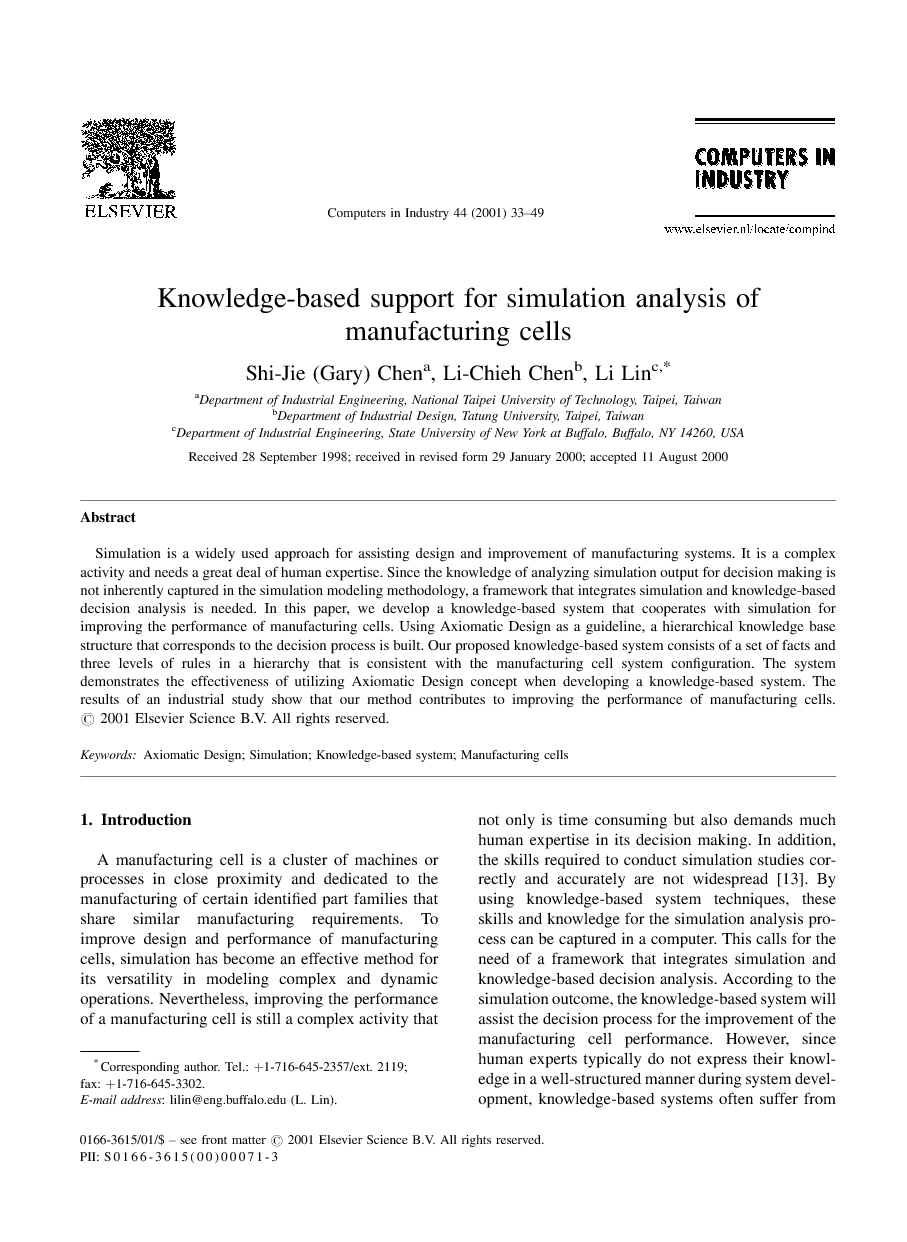ترجمه فارسی عنوان مقاله
پشتیبانی مبتنی بر آگاهی برای تجزیه و تحلیل شبیه سازی سلول های تولید
عنوان انگلیسی
Knowledge-based support for simulation analysis of manufacturing cells
| کد مقاله | سال انتشار | تعداد صفحات مقاله انگلیسی |
|---|---|---|
| 10475 | 2001 | 17 صفحه PDF |
منبع

Publisher : Elsevier - Science Direct (الزویر - ساینس دایرکت)
Journal : Computers in Industry, Volume 44, Issue 1, January 2001, Pages 33–49
ترجمه کلمات کلیدی
طراحی بدیهی - شبیه سازی - سیستم مبتنی بر دانش - سلول های تولید
کلمات کلیدی انگلیسی
Axiomatic Design,
Simulation,
Knowledge-based system,
Manufacturing cells

